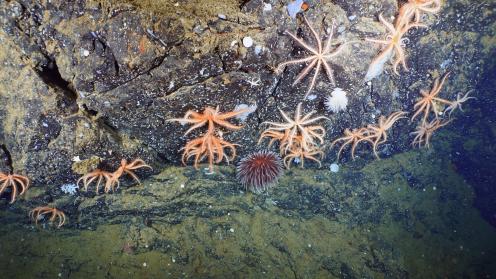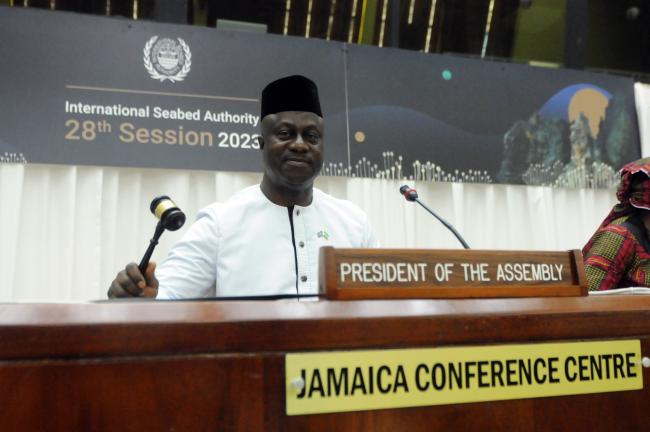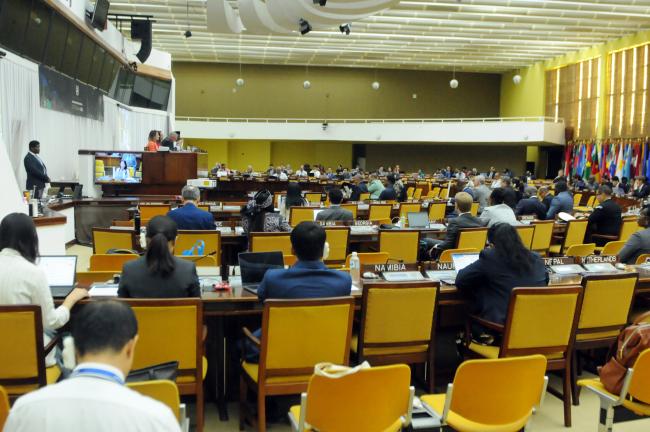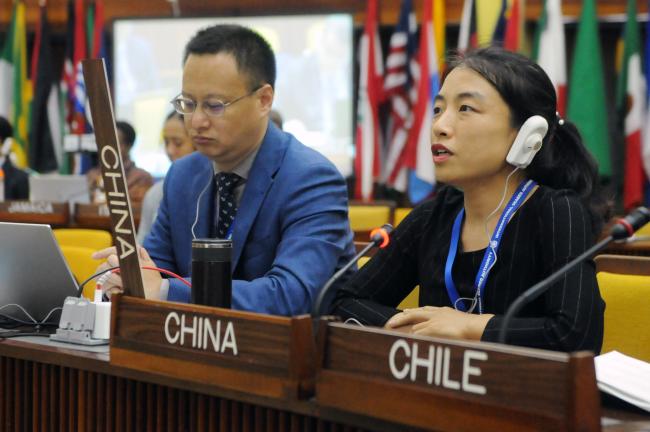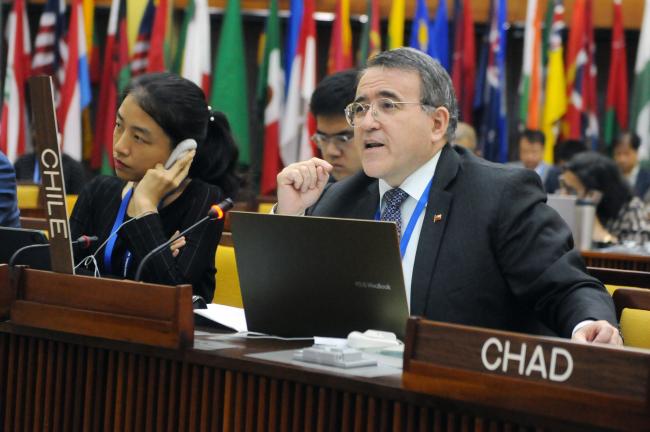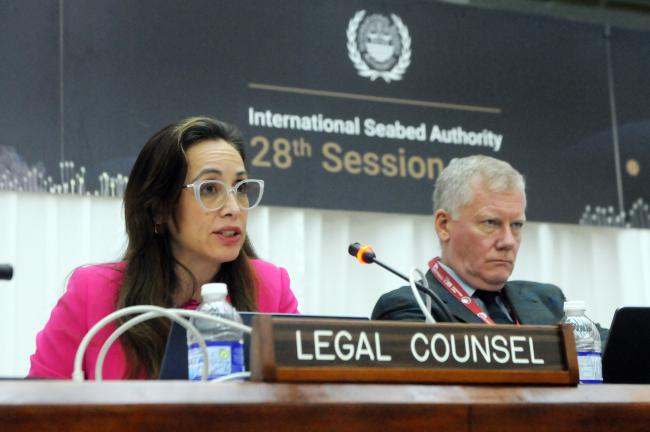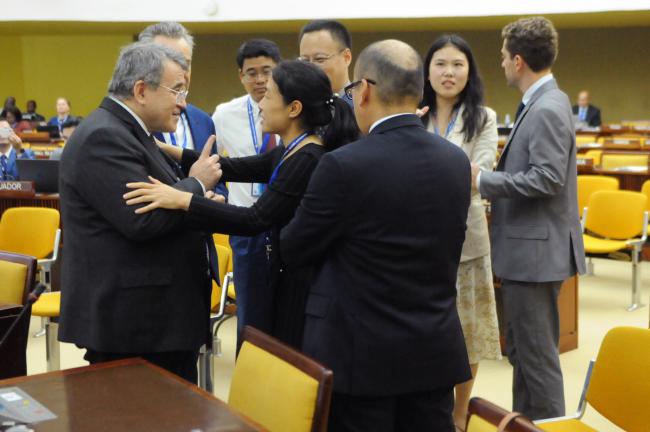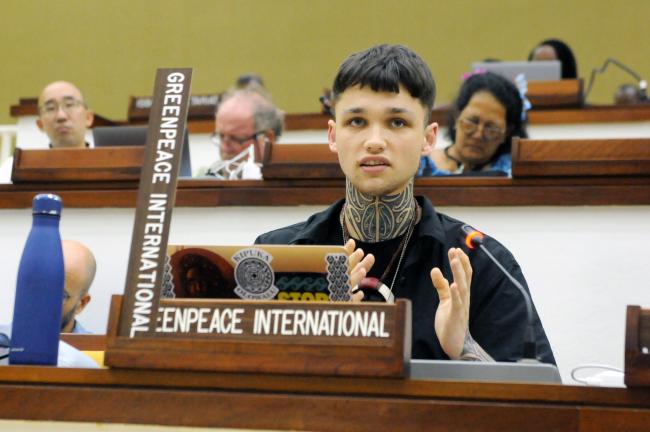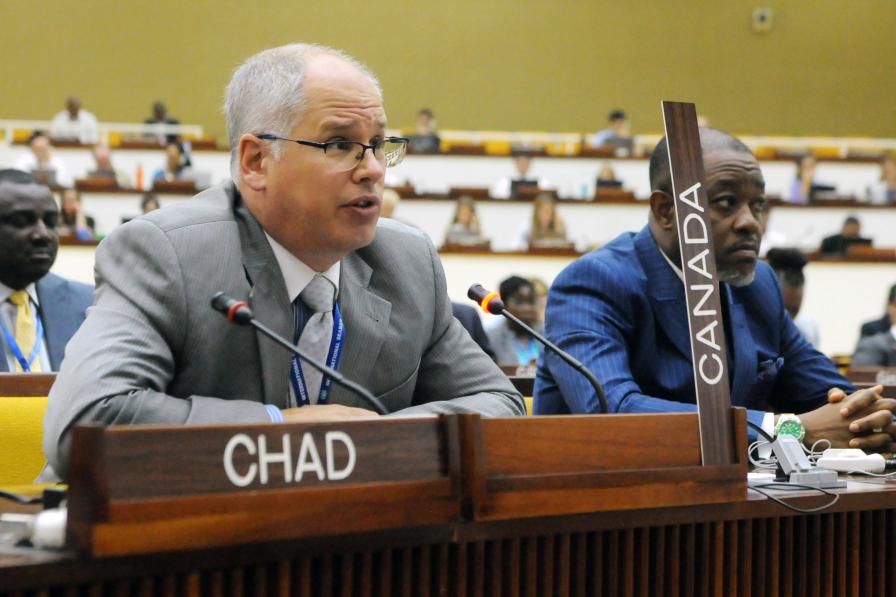The drama surrounding the adoption of the agenda dominated the final day’s deliberations at the Assembly of the International Seabed Authority (ISA), with Assembly President Fanday Turay (Sierra Leone) highlighting the implications of failing to reach consensus, which would result in the inability to acknowledge or adopt any of the work of the annual Assembly session.
The stalemate was due to two supplementary items proposed to be included on the agenda: the establishment of a general policy related to the conservation of the marine environment, put forth by Chile, Costa Rica, France, Palau, and Vanuatu; and the periodic review of the international regime of the Area, proposed by Germany. The first was particularly contentious.
Nigeria, for the African Group, urged for separate adoption of the provisional agenda. She supported discussing the supplementary item on the protection of the marine environment under the Secretary-General’s annual report or under other matters, and including the item on the periodic review in the agenda. Ghana, Cameroon, South Africa, and Zimbabwe pointed to the implications of failing to reach consensus.
Chile, Brazil, and Panama noted that the agenda cannot be adopted as things stand. The UK and Australia expressed flexibility on including the supplementary items, and stressed, with Canada, India, Indonesia, and the Russian Federation, that according to the rules of procedure, the provisional agenda can be adopted separately from the supplementary list.
China stressed that if the meeting fails to adopt the provisional agenda, “everyone will know who is responsible for this.” She underscored that the Assembly meeting provided ample time for discussions.
France stressed that the core issue is not the agenda itself but the proper functioning of multilateralism, and underscored compromise proposals submitted during the informal discussions. He regretted the ongoing situation, adding that those “who blame others are the responsible for this situation” and “if there is a responsibility, it is not ours, we have made concessions.”
Chile stressed several concessions made during the negotiations and highlighted the Assembly as the “supreme organ” of ISA, stressing the need to discuss this topic under its agenda.
The ISA Legal Counsel, Mariana Durney, presented her legal interpretation on the issue, stressing that the provisional agenda and the supplementary item list could be adopted separately.
Chile suggested a compromise by including the supplementary item on the protection of the marine environment on next year’s Assembly agenda and proceeding with adopting the provisional agenda.
In the afternoon, Brazil and Chile noted that the issue of approving the provisional agenda and the supplementary items separately or as a whole is open to interpretation. Many members stressed that the timely adoption of the agenda is key, suggesting avoiding similar situations at future sessions. Chile reiterated its proposal on a potential compromise. China suggested focusing on the unconditional adoption of the provisional agenda with the limited time left.
Following the last round of informal consultations, delegates approved the provisional agenda. They decided to include the periodic review as an agenda item for the 29th session of the Assembly in 2024 with a view to adopt a decision, and requested the Finance Committee to consider budgetary implications pertaining to the undertaking of the periodic review. The proposal on a general policy on the protection of the marine environment will be resubmitted by the proponents to be considered for inclusion at the 29th session. The Assembly further decided to extend the current Strategic Plan 2019-2023 by two years.
China, Chile, and Nigeria, on behalf of the African Group, highlighted the difficult compromise. China stressed the need to further consider the intersessional method of work for supplementary agenda items. Chile regretted that the group proposal on environmental protection was sidelined and urged reflecting on the ISA procedures dealing with proposals for supplementary agenda items, stressing that multilateralism is based on good faith and solidarity. He reserved the right to resubmit the proposal during the next Assembly session. France stressed the need to prioritize the preservation of marine biodiversity over human activities in the deep seabed.
In closing statements, delegates and observers highlighted the need to protect and preserve the marine environment, and operationalize the common heritage of humankind regime through fair and equitable benefit-sharing.
President Touray thanked all delegates and observers for their hard work, commitment, and spirit of compromise, and gaveled the meeting to a close at 5:38 pm.
All ENB photos are free to use with attribution. For the 2nd Part of the 28th Annual Session of the ISA, please use: Photo by IISD/ENB | Diego Noguera
To receive free coverage of global environmental events delivered to your inbox, subscribe to the ENB Update newsletter.
